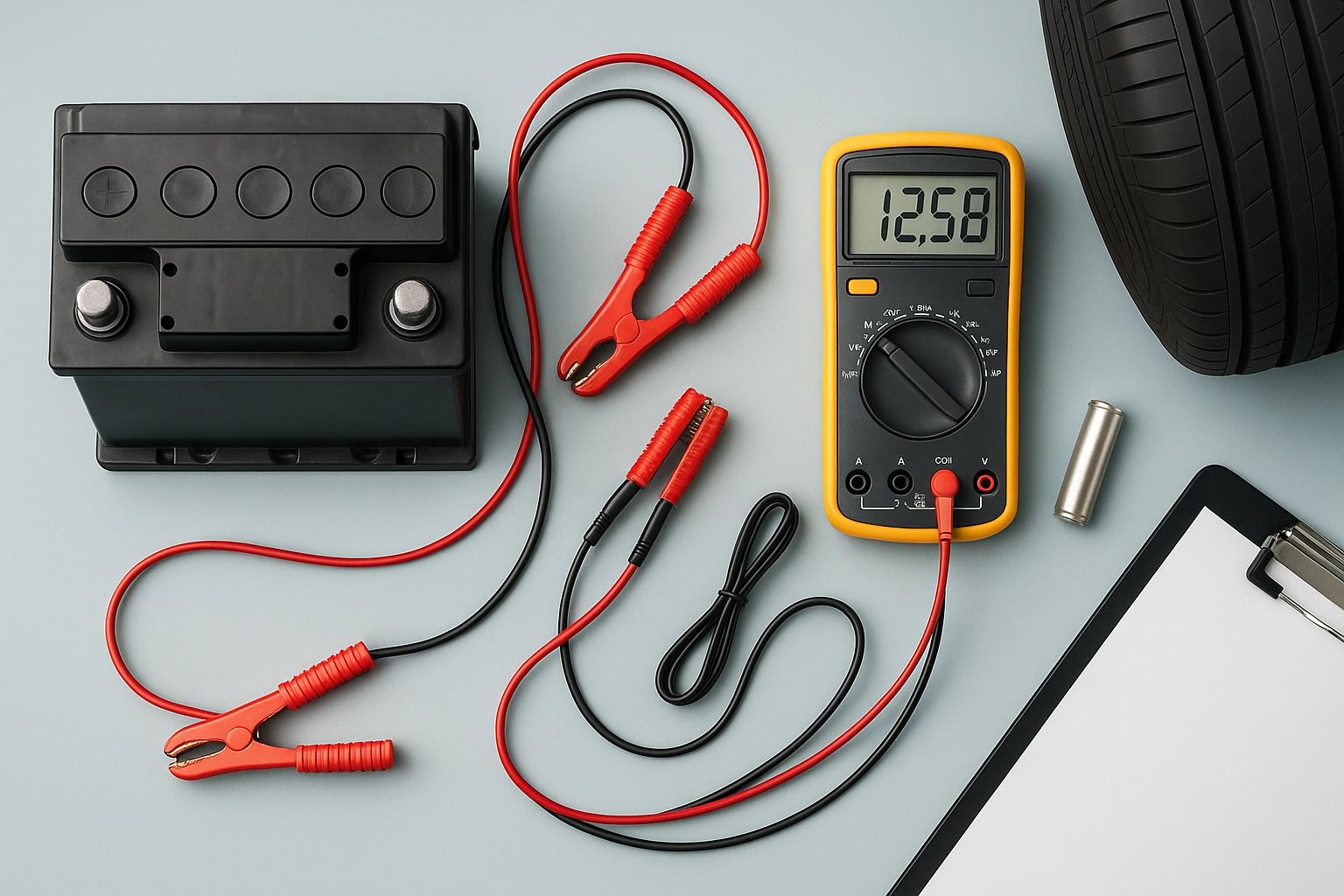Automotive Battery Testing
The automotive industry is characterized by stringent quality standards and rigorous testing protocols aimed at ensuring safety, reliability, and performance of all components. Among these critical components are batteries, which play a pivotal role in powering electric vehicles (EVs) as well as traditional internal combustion engine (ICE) cars. Automotive battery testing ensures that the batteries meet the highest industry standards for durability, energy density, power output, and lifecycle performance.
At our laboratory, we offer comprehensive testing services tailored to automotive batteries, covering a wide range of parameters from initial design validation through production quality assurance. Our expertise spans various types of automotive batteries including lead-acid, lithium-ion, nickel-metal hydride (NiMH), and others used in both start-stop systems and hybrid electric vehicles.
Our testing methodologies are aligned with international standards such as ISO 16255 for starting, lighting, and signaling equipment batteries, and IEC 61970 for traction batteries. Our state-of-the-art facilities ensure accurate and reliable data collection, which is crucial for optimizing battery design and performance. We provide detailed reports that include test results along with recommendations for improvement based on our findings.
The importance of automotive battery testing cannot be overstated. It helps manufacturers identify potential issues early in the development process, reducing time-to-market and costs associated with recalls or failures post-launch. Additionally, it ensures compliance with regulatory requirements, enhancing consumer trust and safety.
Our team comprises highly skilled professionals who possess deep knowledge of both hardware and software aspects related to automotive battery testing. They stay updated on emerging trends in the field and incorporate these insights into their practices regularly. This continuous learning process allows us to offer innovative solutions that meet current challenges faced by the industry.
In conclusion, comprehensive automotive battery testing is essential for maintaining high-quality standards across the entire lifecycle of a vehicle's power supply system. By leveraging advanced technologies and adhering strictly to relevant international specifications, our laboratory ensures accurate assessments that contribute significantly towards achieving optimal performance and reliability in automotive batteries.
Benefits
The benefits of thorough testing for automotive batteries are manifold. Firstly, it enhances safety by identifying any potential flaws or weaknesses within the battery before they become critical defects during operation. Secondly, this process aids in improving overall efficiency and extending the useful lifespan of the battery, which translates directly into reduced maintenance costs over time.
Thirdly, automotive battery testing contributes to environmental sustainability by promoting the use of more efficient and sustainable power sources while minimizing waste generation due to premature failure or obsolescence. Fourthly, it supports continuous improvement efforts within manufacturing processes through regular evaluation reports that highlight areas needing attention or enhancement.
Fifthly, compliance with regulatory standards is ensured, thereby avoiding legal penalties and maintaining a positive reputation among stakeholders including customers, investors, and regulators alike. Lastly, early detection of problems during testing allows manufacturers to make informed decisions about product redesigns or improvements based on empirical evidence rather than conjecture.
Customer Impact and Satisfaction
The impact of our automotive battery testing services extends beyond mere technical compliance; it also significantly enhances customer satisfaction by delivering reliable products that meet stringent quality expectations. Through precise evaluation methods, we help ensure consistent performance across all units manufactured, leading to increased trust among end-users who rely on dependable power sources for their vehicles.
Our rigorous testing protocols not only contribute to higher levels of safety but also enable manufacturers to differentiate themselves in competitive markets by offering superior products backed by robust quality assurance processes. This translates into enhanced brand reputation and customer loyalty as satisfied customers become advocates for the brand, recommending it to others.
In addition, by addressing any issues identified during testing promptly and effectively, we assist our clients in minimizing downtime and operational disruptions that could otherwise arise from faulty batteries. Such proactive measures demonstrate a commitment to excellence, fostering long-term relationships built on mutual respect and shared goals.
Use Cases and Application Examples
In the context of automotive battery testing, our services cater to various use cases ranging from initial design validation through final quality assurance checks. For instance, during early stages of product development, we conduct feasibility studies aimed at evaluating different chemistries, architectures, and configurations for their suitability in specific applications.
For production batches, continuous monitoring ensures adherence to predefined specifications throughout the manufacturing process. This helps maintain consistent quality levels while allowing adjustments as necessary based on real-time data collected during tests. Another application involves field-aged batteries where long-term exposure conditions are simulated to assess degradation rates and durability under realistic scenarios.
A practical example would be testing a lithium-ion battery intended for use in an electric vehicle (EV). We simulate the driving cycles typical of such vehicles, including acceleration phases, cruising periods, deceleration events, and stop-and-go traffic patterns. By subjecting the batteries to these conditions repeatedly over extended durations, we can accurately gauge their capacity retention, internal resistance changes, thermal stability, and other critical metrics.
Furthermore, our testing facilities support certification programs required by regulatory bodies worldwide. For instance, if a manufacturer wants to obtain certification for its battery under ISO 16255 or IEC 61970 standards, we provide the necessary documentation supporting compliance along with recommendations for any modifications needed.





